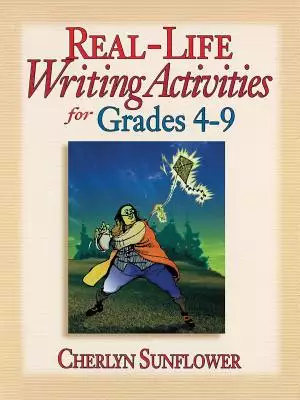Travel brochure samp的問題,透過圖書和論文來找解法和答案更準確安心。 我們找到下列免費下載的地點或者是各式教學
Travel brochure samp的問題,我們搜遍了碩博士論文和台灣出版的書籍,推薦Sunflower, Cherlyn寫的 Real-Life Writing Activities for Grades 4-9 可以從中找到所需的評價。
真理大學 觀光事業學系碩士班 羅惠西所指導 黃鈴媖的 微電影對旅遊目的地意象與旅遊意願之影響-以故宮旅遊之 〝故事宮寓〞為例 (2020),提出Travel brochure samp關鍵因素是什麼,來自於微電影、目的地意象、旅遊意願。
而第二篇論文靜宜大學 寰宇管理碩士學位學程 何淑熏所指導 方祥的 探討區塊鏈 -以用戶為中心的資料貨幣化之質性研究 (2017),提出因為有 的重點而找出了 Travel brochure samp的解答。
Real-Life Writing Activities for Grades 4-9

為了解決Travel brochure samp 的問題,作者Sunflower, Cherlyn 這樣論述:
This ready-to-use resource provides 40 complete model and writing lessons that capture students' attention, build their writing skills, and teach them a writing process (motivation, brainstorming, composing, revising, and publishing) that will serve them throughout their lives. The lessons/activi
ties are designed for young authors in grades 4 through 9 who are just learning the composing process, as well as for advanced writers who are ready to experiment with a variety of writing and speaking genres. They feature a wide range of practical writing tasks students can easily relate to their o
wn lives. For easy use, all materials are printed in a big 8 1/4" x 11" lay-flat binding that folds flat for photocopying of the writing formats and evaluative checklists that accompany many of the lessons, and are arranged developmentally into five sections. Here's just a sample of what each sectio
n offers: 1. Descriptive Compositions for Young Authors: "People/Fact Hunt"..."Consumer Survey"..."Captions"..."Letter of Introduction to My Next Teacher"...: Restaurant Review Checklist"..."Horoscope" 2. Directional Compositions for Young Authors: "Advice to Next Year's Class"..."Treasure Map Dire
ctions"..."Friendship Recipe"..."Cheer-Up Checklist"..."Medical Guide"..."Advice Column Solution Letter" 3. Persuasive Compositions for Young Authors: "Apology/ApologyNote"..."Travel Brochure"..."Movie.VideoReview"..."Sympathy Message"..."Bill of Rights"..."Letter of Complaint"..."Eulogy" 4. Marrati
ve Compositions for Young Authors: "Good News/Bad News Tale"..."Mystery/Whodunit" 5. Poems & Songs for Young Authors: "Simple Chant"..."Five-Line Poem"..."Comparison Poem"..."Auto/Bio Poem"..."Modern Nursery Rhymes" All lessons provide step-by-step instructions, including alternative motivators,
examples of what to say to elicit students' response and what to write on the chalkboard, and suggestions for responding to students' writing in a way that will encourage them. You'll also find the lessons are ideally flexible. You may follow the steps in each Real-Life Writing lesson just as descr
ibed or add, omit, and/or change parts to fit your students' knowledge, skills, or interests and/or your curriculum needs.
微電影對旅遊目的地意象與旅遊意願之影響-以故宮旅遊之 〝故事宮寓〞為例
為了解決Travel brochure samp 的問題,作者黃鈴媖 這樣論述:
本研究目的主要探討觀眾者在觀看《故事宮寓》微電影後,觀光目的地意象,及旅遊意願之差異;並探討目的地意象以及旅遊意願間之關係。在網路施測共收594份有效問卷,研究結果發現微電影對目的地意象與旅遊意願皆有顯著影響。 本研究目的欲以微電影為研究主題,了解觀眾觀賞「微電影」後,會對旅遊目的地產生造訪之意願,博物館應該掌握時代潮流,運用網路提供數位化的教育與服務,滿足社會大眾終身學習需求。 建議觀光相關單位可借用形象良好的偶像作為博物館行銷代言,並以新奇且貼近生活的故事產生共鳴,才能有效的提升影視旅遊產品的價值,同時進行目的地整合行銷與溝通,且加強旅遊服務之配套措施,以增加遊客的旅遊意願。
探討區塊鏈 -以用戶為中心的資料貨幣化之質性研究
為了解決Travel brochure samp 的問題,作者方祥 這樣論述:
This study utilizes exploratory research in assessing factors that may influence consumers to migrate from traditional cloud-based data storage providers to alternative Decentralized Applications (DApps) on blockchain. Based on qualitative data analysis from interviews of 12 adults between 21 and 4
2 years old; current data storage and usage behavior is described juxtaposed with the attitudes, preferences, and reservations regarding emerging blockchain-based substitutions. Extant literature on privacy matters, mass government surveillance and data governance are synthesized and critically disc
ussed. In the concluding section, the author debates the results and implications of the findings for DApps and consumers using Porter’s five forces model as a framework. Then further research areas are suggested and discoursed concerning data security, privacy, ownership, and user-centric monetizat
ion. These areas have been made possible by blockchain technology and supportive data-privacy legislation such as the General Data Protection Regulation (GDPR). The findings pointed to a general distrust of third-party organizations but also open-mindedness to experiment with DApp substitutes that c
ede control to the user. However, this favorable interest came with specific conditions and caveats which DApp developers may leverage to create better products and solutions.